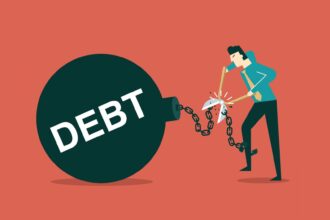What is a savings challenge?
Saving money can be tough, especially when there are so many tempting ways to spend it. That’s where a savings challenge can come in handy. A savings challenge is a way to encourage people to save money by setting a goal and taking steps to achieve it. There are many different types of savings challenges that people in the UK (and obviously around the world) might participate in, and they can be a fun and effective way to build good savings habits and reach financial goals.
Here are some examples of common savings challenges that are popular in the UK

1. 52 Week Challenge
The 52-Week Challenge is a popular savings challenge in the UK that involves saving a certain amount of money each week for 52 weeks. Participants start by saving a small amount of money in the first week and gradually increase the amount each week. For example, the first week might involve saving £1, the second week might involve saving £2, and so on. By the end of the challenge, participants will have saved over £1300. This challenge can be a helpful way for individuals to build up their savings, prepare for unexpected expenses, or achieve other financial goals. It can also be a good way to develop good saving habits and become more mindful of how much money is being spent.
Here is a worked example of the 52-Week Challenge using the following savings plan:
Week 1: £1
Week 2: £2
Week 3: £3
Week 4: £4
Week 5: £5
And so on….
Total saved: £1 + £2 + £3 + … + £52 = £1378
By following this savings plan, a participant in the 52-Week Challenge would have saved a total of £1378 over the course of the year.
2. The Penny Challenge
The Penny Challenge is a savings challenge that involves saving a penny per day which corresponds to the number day of the year. This can be a fun and easy way to save money, as it involves small amounts that may not be noticed on a daily basis. At the end of the year, participants will have saved a significant amount of money, potentially over £670. This challenge can be a helpful way for individuals to build up their savings, prepare for unexpected expenses, or achieve other financial goals. It can also be a good way to develop good saving habits and become more mindful of how much money is being spent. Some people find it helpful to keep a designated jar or piggy bank for collecting their pennies, which can help to visually track progress and stay motivated.
A worked example of the penny challenge is as follows:
Day 1: £0.01
Day 2: £0.02
Day 3: £0.03
Day 4: £0.04
And so on to day 365: £3.65
Total saved: £0.01 + £0.02 + £0.02 + … + £3.65 = £667.95
By following this savings plan, a participant in the penny challenge would have saved a total of £667.95 over the course of the year.
3. The £5 Challenge
The £5 Challenge is a savings challenge that involves saving £5 per week for 52 weeks. This challenge is similar to the 52-Week Challenge, but involves a smaller weekly savings goal. At the end of the year, participants will have saved over £260. This challenge can be a good option for individuals who want to build up their savings but may not have a lot of extra money to put towards savings each week. It can also be a good way to develop good saving habits and become more mindful of how much money is being spent. Some people find it helpful to set aside their £5 at the beginning of each week or to set up a direct deposit from their paycheck to their savings account to make the process automatic.
Here is a worked example of the £5 Challenge using the following savings plan:
Week 1: £5
Week 2: £5
Week 3: £5
Week 4: £5
Week 5: £5
And so on.
Total saved: £5 + £5 + £5 + … + £5 = £260
4. The £10 Challenge
The £10 Challenge is a savings challenge that involves saving £10 per week for 52 weeks. This challenge is similar to the £5 Challenge, but involves a higher weekly savings goal for those of you who can manage it. At the end of the year, participants will have saved over £520. This challenge may be more challenging for some individuals, but can be a good way to build up a larger amount of savings in a short period of time. It can also be a good way to develop good saving habits and become more mindful of how much money is being spent.
Here is a worked example of the £10 Challenge using the following savings plan:
Week 1: £10
Week 2: £10
Week 3: £10
Week 4: £10
Week 5: £10
And so on.
Total saved: £10 + £10 + £10 + … + £10 = £520

5. The No Spend Challenge
The No Spend Challenge is a savings challenge that involves not spending any money on non-essential items for a set period of time, such as a month or a year. This can be a challenging but rewarding way to save money, as it requires participants to be mindful of their spending habits and to find ways to cut back on unnecessary expenses. The No Spend Challenge can be a good way for individuals to save a significant amount of money and to become more mindful of their spending habits. It can also be a good way to develop good saving habits and to focus on using what is already owned instead of constantly buying new things. Some people find it helpful to set specific guidelines for what is considered an essential or non-essential expense, and to plan ahead for any necessary expenses that may come up during the challenge.
A worked example here is hard but you could decide to cut out all barista prepared coffee and cancel your Netflix account.
The savings over a 52 week period if you have 3 coffees per week (at £4 each) and pay Netflix £14.99 per month would be as follows:
Netflix saving: 12 months *£14.99=£179.88
Coffee saving: (3 coffees *£4) * 52 weeks = £624
Total saving by cutting these 2 non-essentials from your spending over 1 year is: £803.88
Obviously, this could be a greater or a lesser saving depending on what non-essentials you are able to cut from your life. Some other (possible) non-essentials could be smoking, gym membership, takeaways, holidays etc.
6. The Budgeting Challenge
The Budgeting Challenge is a savings challenge that involves setting a budget for the year and sticking to it. This can involve cutting back on unnecessary expenses and finding ways to save money on everyday expenses. This challenge can be a good way to develop good budgeting habits and achieve specific financial goals. Some people find it helpful to create a detailed budget plan that outlines all income and expenses for the year and to track their progress on a regular basis. Others may prefer to use budgeting apps or software to help them stay on track.
7. The Savings Jar Challenge
The Savings Jar Challenge is a savings challenge that involves setting aside a certain amount of money each week or month in a designated savings jar. This can be a fun and visual way to save money, as participants can see their savings grow over time. At the end of the year, participants will have saved a significant amount of money that can be used for a special purchase or to build up an emergency fund. This challenge can be a good way for individuals to build up their savings, prepare for unexpected expenses, or achieve other financial goals. It can also be a good way to develop good saving habits and to become more mindful of how much money is being spent. Some people find it helpful to set a specific savings goal for the jar, such as saving for a down payment on a house or a vacation, to help stay motivated.
8.The Debt Payoff Challenge
The Debt Payoff Challenge is a savings challenge that involves focusing on paying off debt as quickly as possible. This can involve creating a debt repayment plan and finding ways to increase income or cut expenses in order to free up more money for debt repayment. This challenge can be a helpful way for individuals to get out of debt and to improve their overall financial situation. It can also be a good way to develop good financial habits, such as paying off credit card balances in full each month and avoiding taking on additional debt. Some people find it helpful to prioritize paying off their highest-interest debts first, as this can save them the most money in the long run. Others may prefer to focus on paying off smaller debts first in order to build momentum and see progress more quickly.
9. The Investing Challenge
The Investing Challenge is a savings challenge that involves setting aside a certain amount of money each month to invest in a diversified portfolio. This can help participants build wealth over the long term and prepare for their financial future. Investing can be a good way to grow money, as it allows individuals to take advantage of the potential for returns on their investments. However, it is important to keep in mind that investing carries risks, and the value of investments can fluctuate over time. This challenge can be a good way for individuals to get started with investing and to learn more about different investment options. It can also be a good way to develop good financial habits, such as regularly setting aside money for investing and monitoring the performance of investments. Some people find it helpful to work with a financial advisor or to use online investing tools to help them make informed investment decisions. We have a number of special offers across a number of investing platforms for you to get started including free shares for signup. Check out our articles on Freetrade, Trading212 and Stake
10. The Financial Goals Challenge
The Financial Goals Challenge is a savings challenge that involves setting specific financial goals for the year, such as saving for a down payment on a house or paying off a certain amount of debt. Participants can then work towards achieving these goals by creating a plan and tracking their progress. This challenge can be a helpful way for individuals to focus on achieving specific financial goals and to stay motivated. It can also be a good way to develop good financial habits, such as regularly setting aside money for saving or debt repayment and monitoring progress towards goals. Some people find it helpful to set smaller, intermediate goals in addition to their overall financial goal, as this can help to break the goal down into more manageable steps and provide a sense of accomplishment along the way. Check out our offer on the Chip Savings App which helps automate your savings for specific financial goals here: Chip Offer















Recent Comments